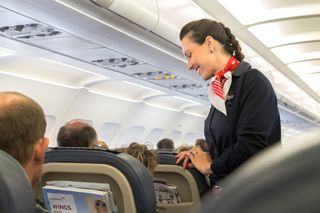
...............................................................................................................................................
Sodium nitrite
preservative in processed meat causes breast cancer
By Tracey Watson
The
jury is in and the verdict is final: Processed meats
like bacon, salami and sausage all increase breast cancer risk.
A
metanalysis of all 15 previously conducted studies on the subject, published
recently in the International Journal of Cancer, has confirmed that
eating processed meat is associated with a 9 percent increase in the risk of
developing this type of cancer.
While
there has been a lot of hype about the risks of eating red meat, this study
found no connection between red meat consumption and increased breast cancer
risk, confirming what
Mike Adams, founder and editor of Natural News has been saying
for 15 years.
The
increased risk is specific to processed meats because of their high nitrite and
nitrate content.
“When we look at all the evidence together there is an increased
risk of breast cancer with diets high in processed meats,” Dr.
Mariana Stern, lead author from the University of
Southern California’s Keck School of Medicine, told CBS
Miami.
What’s the problem with processed meat?
The
additives that take meat from healthy to dangerous are known as nitrites and
nitrates.
These
chemicals are added to processed meats to preserve them, prevent the growth of
harmful bacteria, add a salty flavor, and give cured meats their pink or red
color.
Though
our bodies naturally contain these chemicals and they are present in high
amounts in certain vegetables, the problem comes in when they are exposed to
heat in the presence of amino acids.
When
this happens, they turn into
entirely different compounds, known as nitrosamines, which are
potent cancer causers.
Since
processed meats are high in protein and therefore a source of amino acids,
adding nitrates or nitrites to them and then exposing them to heat provides a
perfect environment for the production of these dangerous nitrosamines, and
therefore dramatically increases cancer risk.
Processed meats also increase risk of other cancers
Back in
2015, the World Health Organization classified processed meats
as a group 1 carcinogen, meaning there is sufficient evidence to prove that
they cause cancer.
The
U.K.’s Guardian reported at
the time:
Health scares are ten-a-penny, but this one was very hard to
ignore. The WHO announcement came on advice from 22 cancer experts from 10
countries, who reviewed more than 400 studies on processed meat covering
epidemiological data from hundreds of thousands of people.
It was now possible to say that “eat less processed meat,” much
like “eat more vegetables,” had become one of the very few absolutely
incontrovertible pieces of evidence-based diet advice – not simply another
high-profile nutrition fad.
As every news report highlighted, processed meat was now in a
group of 120 proven carcinogens, alongside alcohol, asbestos and tobacco –
leading to a great many headlines blaring that bacon was as deadly as smoking.
Mike Adams
warned back in 2004 that processed meats cause colorectal
cancer, brain tumors and leukemia. And in 2005, he warned that they increase
the risk of pancreatic cancer by 67 percent:
Consuming processed meats increases the risk of pancreatic
cancer, says new research conducted at the University of Hawaii that followed
nearly 200,000 men and women for seven years. According to lead study author
Ute Nothlings, people who consumed the most processed meats (hot dogs and
sausage) showed a 67% increased risk of pancreatic cancer over those who
consumed little or no meat products.
The
evidence is clear: It’s time to eliminate all processed meats from our diets.
In
fact, replacing all processed foods with fresh, unprocessed, organic fruits,
veggies and meat is the healthiest choice we can all make for our future
health.
Chemicals.News
is a fact-based public education website published by Chemicals News Features,
LLC.


